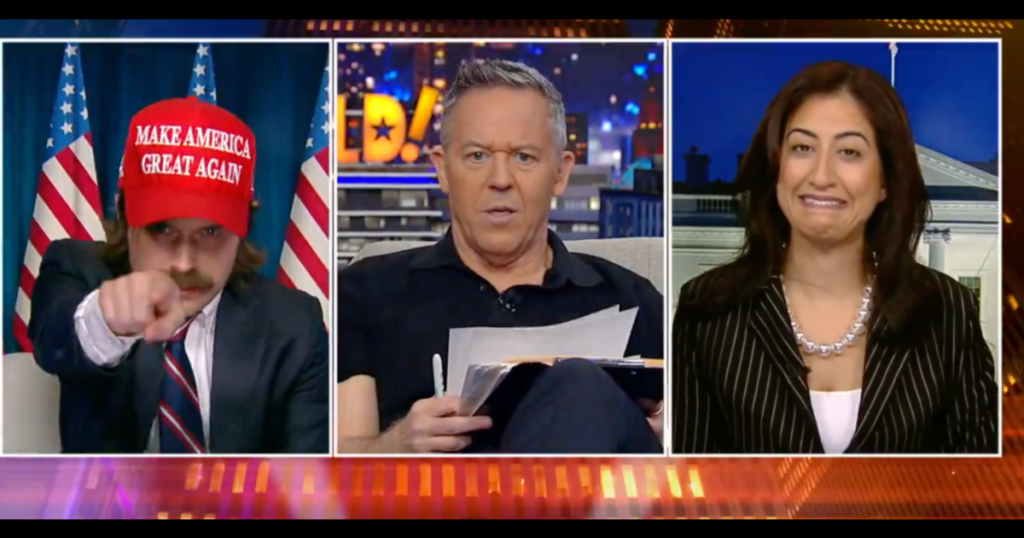In a politically charged atmosphere leading up to the upcoming elections, Fox News host Greg Gutfeld orchestrated a unique debate featuring impersonations of President Donald Trump and Vice President Kamala Harris. Tyler Fischer embodied Trump, while Estee Palti portrayed Harris. Gutfeld’s introduction emphasized the rarity of formal debates between the candidates, making this mock debate an entertaining and satirical rendition of their potential clash. His invitation to both candidates aimed to simulate the contentious political dialogue that has characterized their real-life interactions.
The debate kicked off with Gutfeld posing a question to Harris regarding her recent media engagements and their efficacy in appealing to voters. In a humorous take, “Kamala Harris” responded with a nonsensical monologue about her upbringing and the significance of her media appearances, which included bizarre references to popular culture. Her reply was peppered with her typical laughter, which Gutfeld cleverly pointed out lacked substance, drawing attention to her often awkward communication style. This segment highlighted the criticism Harris faces about her speeches and their perceived disconnect with core voter issues.
“Donald Trump” was asked to respond, and his character wasted no time dismissing Harris’s argument. He mocked her inability to articulate concrete policies, employing a series of one-liners that showcased Trump’s signature style of sarcasm and bravado. He criticized Harris’s vague statements with humorous remarks, comparing her words to nursery rhymes and making outrageous claims about potential presidency outcomes. The exaggerated character of Trump depicted his brash persona, effectively engaging the audience through humor while highlighting the perceived ineffectiveness of Harris’s campaign approach.
As the mock debate continued, Gutfeld raised questions about Trump’s potential plans for his first day back in office. In character, Trump outlined controversial stances such as banning men from women’s sports and denouncing Diversity, Equity, and Inclusion (DEI) initiatives, linking them comically to Harris’s history. The satire here not only aimed at humor but also critiqued the current state of political discourse in America, reflecting the divide in opinions regarding gender and diversity policies. Gutfeld’s interaction showcased how Trump’s exaggerations often constitute his reality, despite criticisms they attract.
Gutfeld redirected the conversation to Harris, questioning her past inconsistencies on certain issues, urging her to assure voters of her reliability. With a scripted response reminiscent of her real speeches, “Harris” reiterated her middle-class background and promised an ambitious array of initiatives aimed at both citizens and illegal migrants, such as free food and housing. However, her reply was laced with confusion, blurring the lines of policy promises and raising questions of feasibility, which Trump quickly seized upon to mock her further. This dynamic illustrated the challenge Harris faces in convincing voters of her stability and clarity in a rapidly shifting political landscape.
In the final exchanges, Gutfeld prompted a discussion on the claim that Trump poses a threat to democracy. Trump humorously claimed he would be a threat if he were to jail Harris, reiterating a comedic callback to past rhetoric and showcasing his penchant for inflammatory remarks. In contrast, Harris’s caricature painted Trump as dangerous, invoking dramatic imagery. Their back-and-forth was characterized by hyperbolic accusations and humor, ultimately portraying the intense rivalry between the two figures. Gutfeld’s conclusion wrapped up the debate with a nod to the absurdities presented, encapsulating the essence of political satire as a means to both entertain and provoke thought among viewers regarding the realities of contemporary politics.

